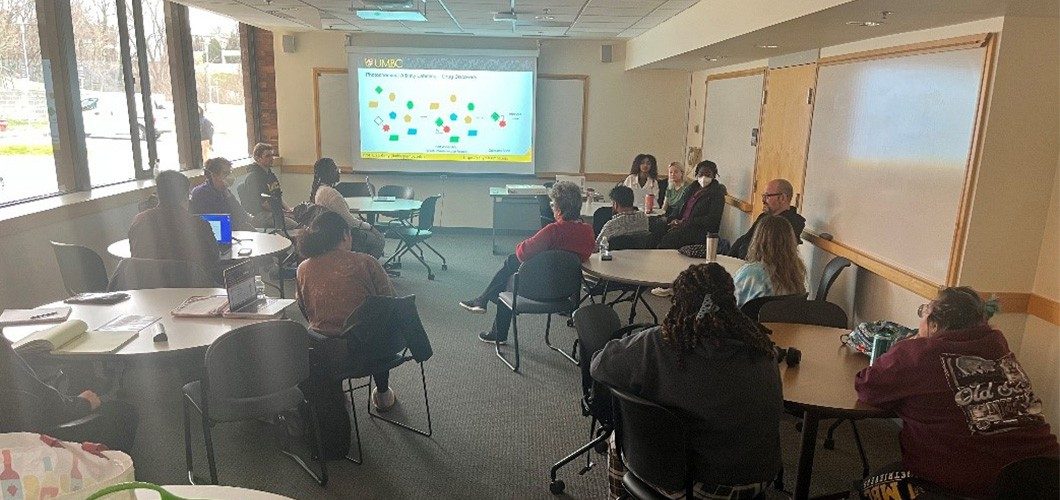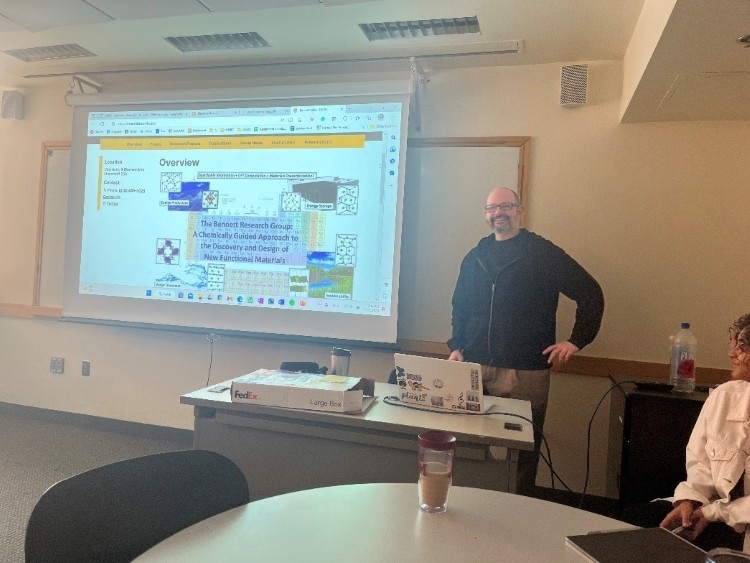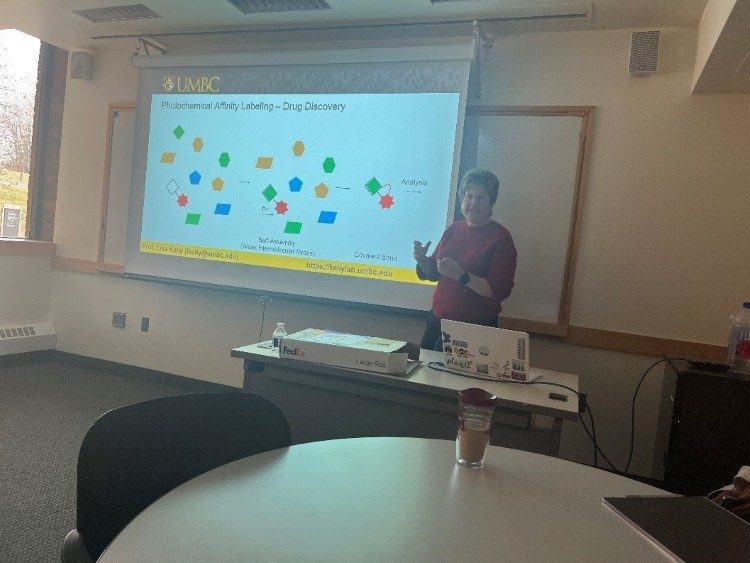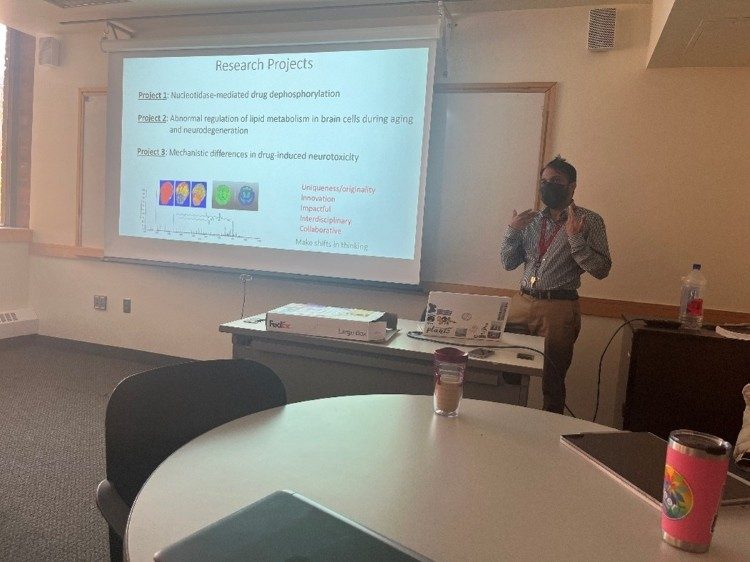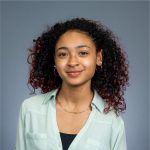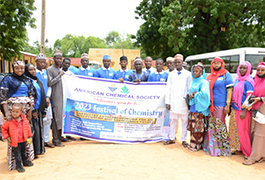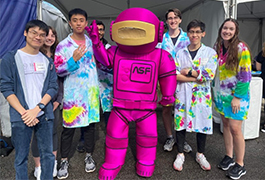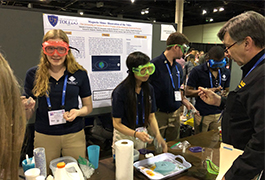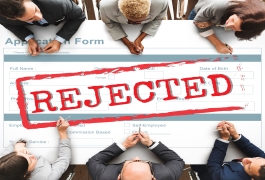Planning to Host a Guest Speaker Event? UMBC Shares Advice on What to Coordinate Before, During, and After
The ACS Student Chapter at the University of Maryland, Baltimore County (UMBC), learned a lot of valuable lessons from organizing a speaker event on their campus in February 2023.
We talked to UMBC Chapter President Kaylyn Stewart about their experience, and here is what she had to say about the importance of planning ahead, adapting to changes, and increasing engagement.
You organized a reseach panel on your campus. Who did you invite and what did you want students to get out of the event?
We organized a research panel of UMBC faculty to show students a variety of different research areas that they may not have known existed and diverse ways that the content they are learning in class can be applied to the real world, especially at the university.
We also thought it would be a great opportunity for students to learn how to get involved with the research that faculty is doing here on campus, as many students are not aware that these opportunities are right at their fingertips.
We invited Dr. Joseph Bennett (assistant professor), Dr. Lisa Kelly (associate professor), and Dr. Herana Kamal Seneviratne (assistant professor) from the Department of Chemistry and Biochemistry.
Dr. Bennett researches the design of functional materials and is very computational chemistry and informatics focused. Dr. Kelly conducts research with photochemical probes and stimuli-responsive polymers. Dr. Seneviratne utilizes biochemical approaches to study drug responses and disposition.
Did your chapter adviser help you in any way with securing speakers?
Our faculty adviser, Dr. Marie van Staveren, assisted us in reaching out to potential participants for our panel. We invited seven faculty members, knowing some were going to be unavailable. It is better to overestimate than to underestimate. If we wanted to search for a speaker outside of our department, we knew we could ask the department chair or other faculty members if they had any suggestions on who would be a good fit for the purpose of our meeting.
If we had more time, we could have also reached out to our ACS local section for potential panelists.
How did you prepare your speakers and support them during the function?
We made sure to give the speakers the date, time, and location of our event. We informed them that we wanted them to give students a brief introduction to their research using a two- or three-slide PowerPoint presentation. We also put an emphasis on how to get involved with their research lab, how to join a research lab, and why it may be important. Although undergraduate research is common at UMBC, some students do not conduct undergraduate research and are not familiar with the process, so we wanted to encourage them to get involved through our speakers.
Because the speakers were UMBC faculty, there was not a need for financial support. In terms of technological support, we thought it would be easiest to have each panelist send their slide(s) to our faculty adviser, Dr. van Staveren. She combined their slides into one presentation to allow for smooth transitions between each presenter..
No event is perfect. There are always challenges that come with event planning. What did you encounter and how did you handle it?
We were supposed to have refreshments at the meeting, but due to unforeseen circumstances, they were not delivered. However, we were able to offer candy, chips, and water that we had on hand from previous events.
We also had some difficulties with planning the event. Because this was our chapter’s first in-person guest speaker event post-COVID, there were some aspects of it that we forgot to even consider. For example, when our speakers came into the room for our event, we didn’t have designated places for them to sit! When you are online, speakers just enter the virtual room; you don’t have to consider where they will sit. So, our panelists sat with our audience because of the way the room was set up. This ended up making the meeting feel more informal.
Additionally, one of our speakers had not arrived at the event in time to give their presentation. Instead of waiting around, we decided to have an impromptu Q&A for the other two faculty members. Luckily, our third presenter arrived shortly after that discussion began.
We also did not consider having a designated moderator for this event. The president for our chapter, Kaylyn Stewart, stepped in as a moderator on the spot. By having a moderator, we learned a lot more about the journeys of our panelists that led them to the academic positions they are in now.
How successful were you with marketing the event?
Our public relations officers created flyers and promoted the event on our social media platforms several days in advance of the event. We used Instagram, email, Discord server, and myUMBC, which is an online website for all things UMBC.
If we were to host another event, we would plan farther in advance and consider more aspects of the event. For example, we had a low attendance of 10 people. To attract more attendees, we learned that it would be wise to allow more time to advertise—at least a week in advance!
What else would you do differently to make hosting an event more successful. What would you do the same?
We would also ensure refreshments are served on time to the best of our ability. Some things were out of our control, but having a backup plan for certain things would help alleviate potential stressors. We won’t always be lucky enough to have an unplanned snack stash!
Briefly running through how the event would go beforehand (even just between a couple of officers) in the room would help us consider seating placements, room arrangements, organizing the timing of the event, etc. We would also have a proper introduction for each speaker that would be shared at the beginning of the meeting.
Choosing a moderator for a future panelist event would be essential. We could have questions sent to the panelists in advance to help them prepare thought-out responses.
One thing we would keep the same is the student Q&A portion of the event. We opened the floor for students to ask questions, and if the students did not have a question, we had some on deck. In addition to asking about the professor’s research, it is great to hear how they got to where they are today and what has personally inspired them and kept them going through their academic journey.
Do you have any advice for student chapters that have never done a guest speaker event?
Our advice to a student chapter that has never had a guest speaker is to plan ahead! Help the speaker out as much as possible by letting them know details of the event: what you are hoping to get out of their talk; who the audience will be; what resources are available for them to aid their presentation; date, time and how to get there. When the event happens, ensure you have someone directing them where to go. After the event, be sure to prepare a thank-you token, whether that be a card from the officers/members, gift card, T-shirt, pin, etc. Let them know that their time was appreciated and not taken for granted. Most of all, try to make sure students are engaged with the speakers, and that this is a person who the members would be interested in hearing. Also, always remember to take pictures!
Special thanks to Kaylyn Stewart, UMBC's ACS Student Chapter President, for representing her school and chapter for this article.

